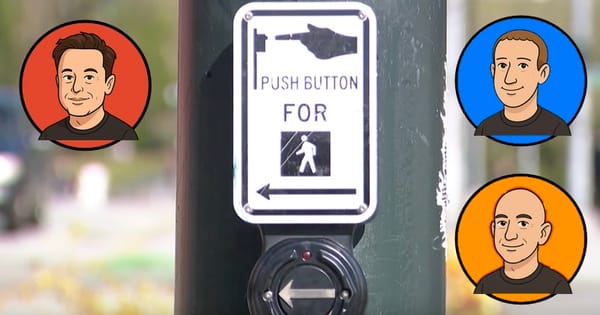Crypto-Recovery Scammers Steal $10 Million from Victims Who Already Had Their Wallets Drained in a Previous Scam

The FBI has issued a public service announcement informing players in the crypto market to keep their eyes peeled as fraudsters are doubling down on recovery scams.
Crypto scams have increased in scale and sophistication in recent years. Victims reported losing more than $2.5 billion in cryptocurrency investment frauds in 2022 alone, according to the FBI Internet Crime Complaint Center (IC3).
The fed issued an initial warning last year, drawing attention to an increase in cryptocurrency recovery schemes designed to exploit victims who have already lost cryptocurrency to fraud, scamsor theft.
Now, the bureau says it has noticed an emerging criminal tactic used to further defraud cryptocurrency scam victims: fictitious law firms baiting victims who already had their crypto wallets drained by scammers, claiming to be on their case to recover their precious coin – for a fee.
Fake law firms
“Using social media or other messaging platforms, fraudsters posing as lawyers representing fictitious law firms may contact scam victims and offer their services, claiming to have the authorization to investigate fund recovery cases,” the agency explains.
“To validate the contact, the ‘lawyers’ claim they are working with, or have received information on, the scam victim's case from the FBI, Consumer Financial Protection Bureau (CFPB), or other government agency.”
In some cases, scam victims end up baiting themselves by contacting what they believed to be legitimate recovery services, according to the notice.
Red flags
While scammers typically employ sophisticated, convincing methods to trick their victims, you should still be able to pick up on some telltale signs that you’re getting scammed. For example:
· A request to verify your identity by providing personal identifying information or banking information
· A request to provide a judgment amount
· A request to pay some initial fees up front with the balance due when funds are recovered
· Getting directed to make payments for back taxes and other fees to recover the stolen funds
· Referencing actual financial institutions and money exchanges to build credibility
The tactic has already caused losses of over $9.9 million, the IC3 says. Crypto players should also:
· Always be suspicious of ads for cryptocurrency recovery services. Do your research before enlisting their services. Red flags include: the company uses vague language, has a minimal online presence, and makes promises regarding an ability to recover funds, according to the fed
· Be wary if an unknown person contacts you and claims to be able to recover stolen cryptocurrency. Do not disclose financial or personal identifying information and certainly don’t send any money upfront
· Know that law enforcement never charges victims a fee for investigating crimes. If someone calls you claiming to be from the FBI, contact your local FBI field office to confirm.
Impersonation scams on the rise
Impersonation scams are on the rise and often use the names and titles of real government employees, according to a notice from the US Cybersecurity and Infrastructure Security Agency (CISA) issued earlier this month. Phone scammers impersonate the agency requesting cash, cryptocurrency, or gift cards.
Americans lost over a billion dollars to scammers impersonating businesses or government agencies last year, the Federal Trade Commission said in April. Most reports involved copycat account security alerts, phony subscription renewals, fake giveaways, discounts, or money to claim, bogus problems with the law, and made-up package delivery problems.
Use Bitdefender for proactive protection
According to the Bitdefender 2024 Consumer Cybersecurity Assessment Report, few people consider themselves an actual target for cybercriminals. Scams run rampant worldwide yet consumers still engage in complacent cybersecurity practices, making it imperative to use dedicated security on our personal devices.
If you're suspicious about a certain phone call, email or SMS, Bitdefender offers Scamio as a fast and efficient way to find out if you’re being scammed. Simply describe the situation to our clever chatbot and let it guide you to safety. You can share with Scamio the exact thing you want to check: a screenshot, PDF, QR code or link. Scamio lets you know in seconds if it’s a scam. Use it anywhere via web browser, Facebook Messenger, or WhatsApp. Scamio is localized for use in the USA, France, Germany, Spain, Italy, Romania, Australia and the UK.
tags
Author
Filip has 15 years of experience in technology journalism. In recent years, he has turned his focus to cybersecurity in his role as Information Security Analyst at Bitdefender.
View all postsRight now Top posts
How to Protect Your WhatsApp from Hackers and Scammers – 8 Key Settings and Best Practices
April 03, 2025
Outpacing Cyberthreats: Bitdefender Together with Scuderia Ferrari HP in 2025
March 12, 2025
Streamjacking Scams On YouTube Leverage CS2 Pro Player Championships to Defraud Gamers
February 20, 2025
How to Identify and Protect Yourself from Gaming Laptop Scams
February 11, 2025
FOLLOW US ON SOCIAL MEDIA
You might also like
Bookmarks








